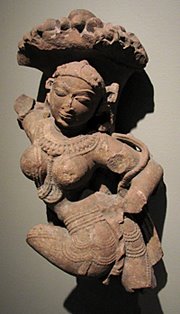-- from A Common Faith by John Dewey
"These considerations may be applied to the idea of God, or, to avoid misleading conceptions, to the idea of the divine. This idea is, as I have said, one of ideal possibilities unified through imaginative realization and projection. But this idea of God, or of the divine, is also connected with all the natural forces and conditions -- including man and human association -- that promote the growth of the ideal and that further its realization. We are in the presence of neither of ideals completely embodied in existence nor yet of ideals that are mere rootless ideals, fantasies, utopias. For there are forces in nature and society that generate and support the ideals. They are further unified by the action that gives them coherence and solidity. It is this active relation between ideal and actual to which I would give the name 'God.' I would not insist that the name must be given. There are those who hold that the associations of the term with the supernatural are so numerous and close that any use of the word 'God' is sure to give rise to misconception and be taken as a concession to traditional ideas.
They may be correct in this view. But the facts to which I have referred are there, and they need to be brought out with all possible clearness and force. There exist concretely and experimentally goods -- the values of art in all its forms, of knowledge, of effort and of rest after striving, of education and fellowship, of friendship and love, of growth in mind and body. Theses goods are there and yet they are relatively embryonic. Many persons are shut out from generous participation in them; there are forces at work that threaten and sap existent goods as well as prevent their expansion. A clear and intense conception of a union of ideal ends with actual conditions is capable of arousing steady emotion. It may be fed by every experience, no matter what its material.
...One reason why personally I think it fitting to use the word 'God' to denote that uniting of the ideal and actual which has been spoken of, lies in the fact that aggressive atheism seems to me to have something in common with traditional supernaturalism. I do not mean merely that the former is mainly so negative that it fails to give positive direction to thought, though that fact is pertinent. What I have in mind especially is the exclusive preoccupation of both militant atheism and supernaturalism with man in isolation. For in spite of supernaturalism's reference to something beyond nature, it conceives of this earth as the moral center of the universe and of man as the apex of the whole scheme of things. It regards the drama of sin and redemption enacted within the isolated and lonely soul of man as the one thing of ultimate importance. Apart from man, nature is held either accursed or negligible. Militant atheism is also affected by lack of natural piety. The ties binding man to nature that poets have always celebrated are passed over lightly. The attitude taken is often that of man living in an indifferent and hostile world and issuing blasts of defiance. A religious attitude, however, needs the sense of a connection of man, in the way of both dependence and support, with the enveloping world that the imagination feels is a universe. Use of the words 'God' or 'divine' to convey the union of the actual with ideal may protect man from a sense of isolation and from consequent despair or defiance." (pp. 50-53)
-- from River out of Eden by Richard Dawkins
"The universe we observe has precisely the properties we should expect if there is, at bottom, no design, no purpose, no evil and no good, nothing but blind, pitiless indifference."
Tuesday, December 9, 2008
Subscribe to:
Post Comments (Atom)





No comments:
Post a Comment